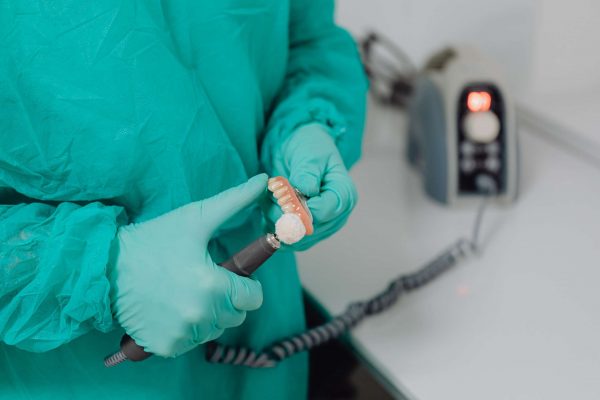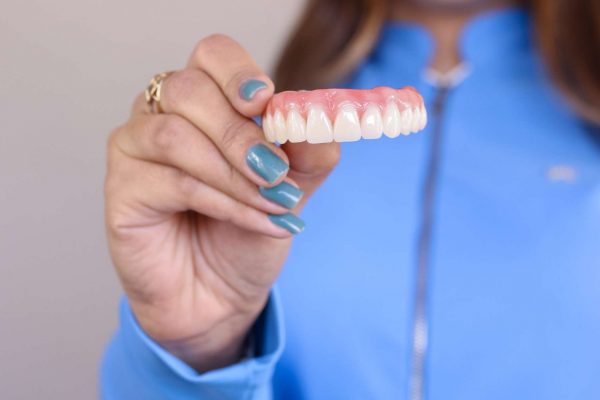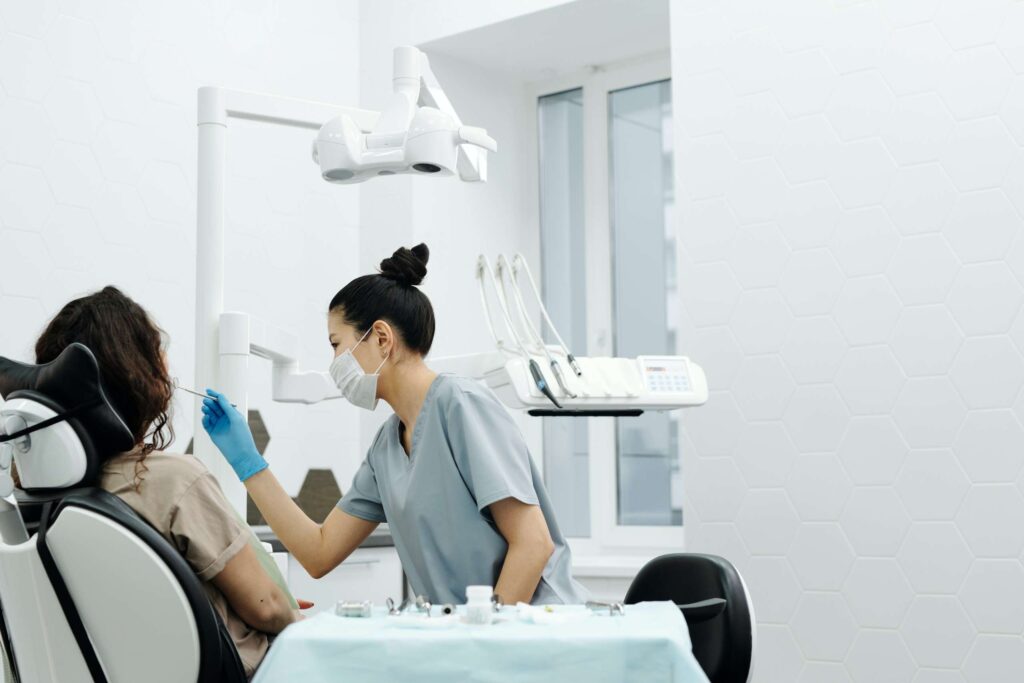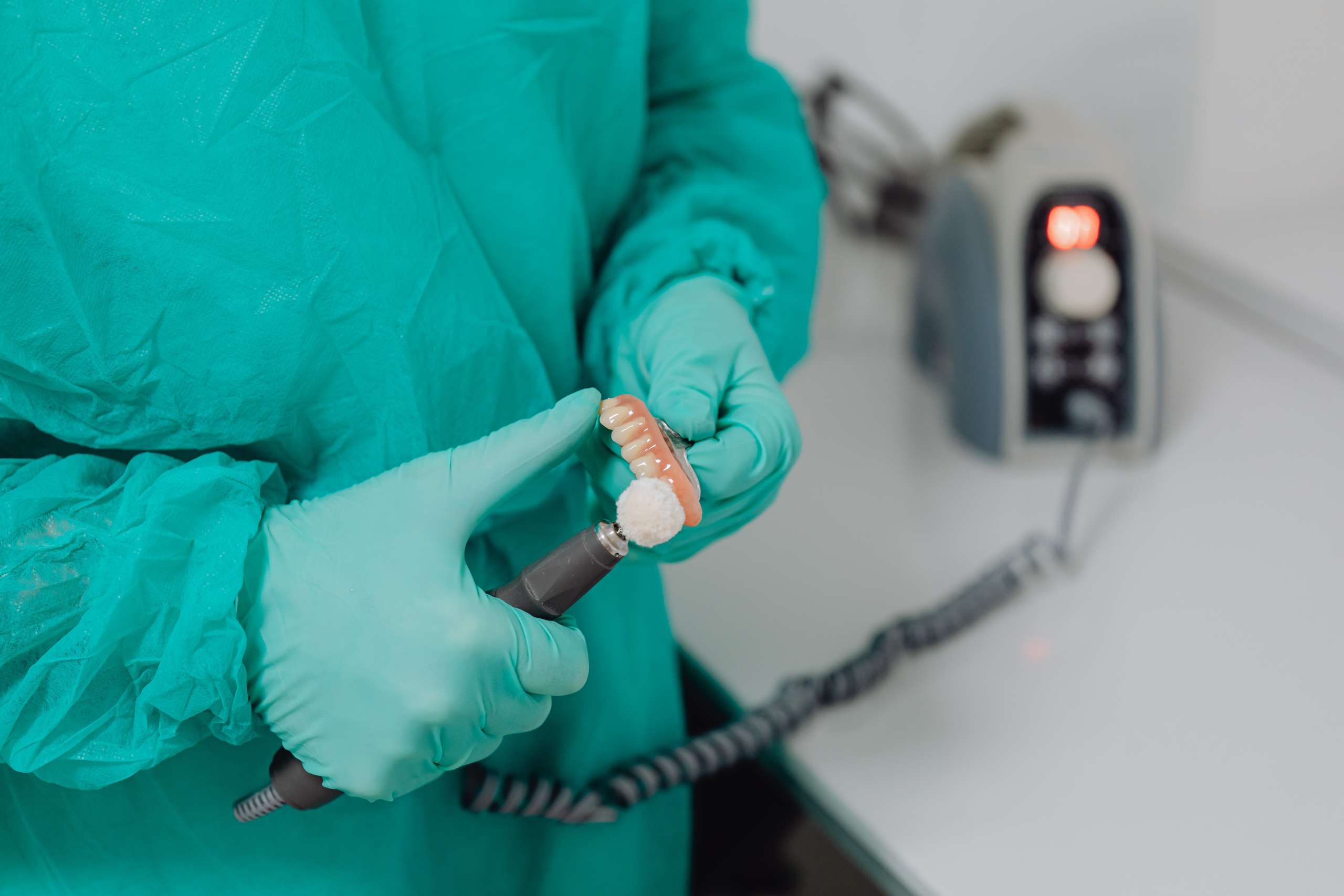Types of Dentures:
Which One is Right for You?
Dentures are a type of dental prosthesis that are used to replace missing teeth and surrounding tissues. They are custom-made to fit each patient’s mouth and are designed to look and feel as natural as possible. Dentures can improve a person’s ability to eat and speak, as well as boost their confidence and overall quality of life. However, it is important to choose the right type of denture in order to ensure maximum comfort and effectiveness.
Choosing the right type of denture can be a daunting task, as there are many different types available. Each type of denture has its own set of advantages and disadvantages, and the choice ultimately depends on the patient’s specific needs and preferences. Factors such as the number of missing teeth, jawbone health, and budget can all play a role in determining which type of denture is right for a particular individual.
In this article, we will provide an overview of the different types of dentures and their respective pros and cons. We will also discuss the importance of choosing the right denture and provide tips on how to make an informed decision. Whether you are considering dentures for the first time or are in need of a replacement, this guide will help you choose the best type of denture for your needs.

Types of Dentures
1. Complete Dentures
Complete dentures, also known as full dentures, are designed for patients who are missing all of their natural teeth in either the upper or lower jaw, or both. They consist of a full set of artificial teeth that are set into a gum-colored base that sits on top of the patient’s gums. The base is made of either acrylic or porcelain and is custom-fitted to the patient’s mouth.
Advantages of Complete Dentures:
Disadvantages of Complete Dentures:
Best Candidates for Complete Dentures:
Complete dentures are a popular and effective option for patients who are missing all of their natural teeth. While they may require some adjustment and maintenance, they can significantly improve a patient’s quality of life by restoring their ability to eat, speak, and smile with confidence.
2. Partial Dentures
Partial dentures, also known as removable partial dentures or partials, are designed for patients who are missing one or more natural teeth in either the upper or lower jaw. They consist of a removable artificial tooth or teeth that are attached to a metal or plastic framework that is custom-fitted to the patient’s mouth. The framework typically attaches to the patient’s natural teeth using metal clasps or precision attachments.
Advantages of Partial Dentures:
Disadvantages of Partial Dentures:
Best Candidates for Partial Dentures:
Partial dentures can be an excellent solution for patients who are missing one or more natural teeth. They are less expensive than other options and can help improve a patient’s ability to speak and chew food properly. Proper care and maintenance of partial dentures can help extend their lifespan and ensure that they function properly.
3. Immediate Dentures
Immediate dentures, also known as temporary dentures, are designed to be worn immediately after a patient’s natural teeth have been extracted. They are typically used as a temporary solution while the patient’s gums heal and the final set of dentures is being created.
Immediate dentures are custom-fitted to the patient’s mouth before the extraction procedure. After the procedure, the dentures are immediately inserted into the patient’s mouth to help protect the extraction sites and allow the patient to chew and speak normally.
Advantages of Immediate Dentures:
Disadvantages of Immediate Dentures:
Best Candidates for Immediate Dentures:
Immediate dentures can be an effective solution for patients who need to have their natural teeth extracted and do not want to be without teeth during the healing process. While they may require some adjustments and maintenance, they can significantly improve a patient’s quality of life by restoring their ability to eat, speak, and smile with confidence. Patients who have a healthy jawbone and gums, are in good overall health, and are willing to follow proper care instructions are ideal candidates for immediate dentures.
4. Overdentures
Overdentures are a type of removable denture that are designed to fit over existing teeth or dental implants. They can be used to replace all or some of a patient’s natural teeth. Overdentures are custom-fitted to the patient’s mouth and are designed to fit over the remaining natural teeth or dental implants. They are typically made from acrylic or a combination of acrylic and metal.
Advantages of Overdentures:
Disadvantages of Overdentures:
Best Candidates for Overdentures:
When considering overdentures, it’s important for patients to have a healthy jawbone and gums, and have some remaining natural teeth or dental implants that can support the overdenture. Patients must also be willing to follow proper care instructions and maintain good oral hygiene practices.

5. Snap-In Dentures
Snap-in dentures are a type of removable denture that are held securely in place using snaps or attachments. They can be used to replace all or some of a patient’s natural teeth. Snap-in dentures are custom-fitted to the patient’s mouth and feature special attachments that snap onto dental implants or abutments that are surgically placed into the jawbone. These attachments help hold the denture securely in place and prevent it from slipping or shifting.
Advantages of Snap-In Dentures:
Disadvantages of Snap-In Dentures:
Best Candidates for Snap-In Dentures:
Snap-in dentures are a popular option for patients who want a more stable and comfortable denture solution. They offer several advantages over traditional dentures, such as increased stability and support, and help preserve the jawbone.
6. Flexible Dentures
Flexible dentures, also known as flexible partial dentures or thermoplastic dentures, are a type of removable denture made from a flexible material instead of rigid acrylic. The flexible material is typically a type of nylon or thermoplastic. Flexible dentures are designed to be comfortable and lightweight. They are custom-fitted to the patient’s mouth and can be used to replace one or more missing teeth. The flexible material allows the denture to bend and flex as the patient moves their mouth.
Advantages of Flexible Dentures:
Disadvantages of Flexible Dentures:
Best Candidates for Flexible Dentures:
Flexible dentures offer a lightweight, comfortable, and aesthetically pleasing solution for patients who have missing teeth. They are a popular option for patients who want a denture solution that is more comfortable to wear and blends in with their natural teeth and gums.
7. Implant-Supported Dentures
Implant-supported dentures are a dental solution that utilizes dental implants surgically inserted into the jawbone to support the dentures. This type of denture offers increased stability and reduces the risk of slipping or dislodgement, resulting in greater comfort and confidence for the wearer. They are designed to provide increased stability and support compared to traditional dentures.
Implant-supported dentures are made up of two parts: the denture and the implants. The denture is custom-made to fit the patient’s mouth, while the implants are surgically placed into the jawbone. The denture is then attached to the implants, providing a secure and stable fit.
Advantages of Implant-Supported Dentures:
Disadvantages of Implant-Supported Dentures:
Best Candidates for Implant-Supported Dentures:
Implant-supported dentures offer a more stable and secure solution for patients seeking to restore their smile and improve their quality of life. They offer several advantages over traditional dentures, such as increased stability and support and help preserve the jawbone.
Choosing the Right Denture
Choosing the right dentures can be a daunting task, as there are many factors to consider. Here are some things to keep in mind when deciding which denture is right for you:
Factors to Consider When Choosing a Denture:
- Level of tooth loss: The amount of teeth a patient is missing can determine which denture is best suited for them. For instance, patients who are missing most or all of their teeth may be better suited for complete dentures, while those who are missing only a few teeth may be better candidates for partial dentures.
- Jawbone and gum health: The health of a patient’s jawbone and gums can play a role in which denture is best suited for them. Patients with a healthy jawbone and gums may be better suited for implant-supported dentures, while those with significant bone loss may be better candidates for traditional dentures.
- Lifestyle: Patients should consider their lifestyle when choosing a denture. For instance, patients who have an active lifestyle may prefer implant-supported dentures because of their increased stability and support.
- Cost: The cost of a denture can vary depending on the type of denture, with some options being more expensive than others. Patients should consider their budget when choosing a denture.
Consultation with a Dentist:
It is important for patients to consult with a dentist or prosthodontist when choosing a denture. These dental professionals can evaluate a patient’s dental health and recommend the best type of denture for their individual needs.
Conclusion
Choosing the right denture can make a significant difference in a patient’s quality of life. With so many options available, it can be overwhelming to make a decision. However, consulting with a dental professional and considering factors such as level of tooth loss, jawbone and gum health, lifestyle, and cost can help patients make an informed decision. By taking the time to find the right denture, patients can regain their confidence, improve their oral health, and enjoy a better quality of life.
YOUR DENTIST FOR Dentures IN WALL TOWNSHIP, New Jersey

Looking for dentures near you in Wall Township?
Visit Dr. Avi Israeli of Sage Dental and Spa to bring your smile back by getting your custom-fitted dentures!


